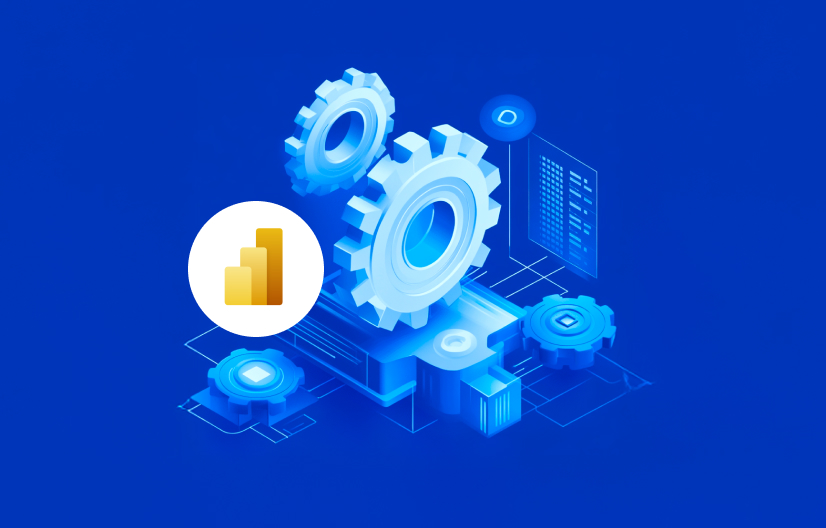
Data Citizens and
Low-Code, No-Code Culture
Technology is evolving very fast; you just need to think about smartphones and everything we have come to do with them these days.
Perhaps less suspected, our access to knowledge has also greatly evolved with the advent of technology. These days, “the sky is the limit”! You can learn so much on your own, from how to become a better photographer to how to analyze and work with the data from your laptop. Yes, you read that right! There are a zillion podcasts, blogs and videos about data analysis and data tools and there is an increasingly high demand for it.
What Is a Data Citizen?
There is a growing audience that is eager to learn and do more in this area. People with backgrounds outside of technical fields (aka IT people), people that are or could be interested in working with data but that don’t have the “formal” skills or the knowledge to code. But they do know how to use the data because of they use it every day in their professional work. That is, by definition, a Data Citizen, someone that works with data but who doesn’t belong to the IT world. You may think this is new but it’s not. What is the origin of this phenomenon? What is its future?
Data Citizens have always been in our organizations, even when data analytics was not as popular as it is today. One can think about the Finance or Accounting folks that are experts in Excel. Some of them even know how to navigate that “black magic” required to create something called macros! The reason why I’m mentioning Excel is because this is the main data analysis tool used amongst organizations and it is a perfect proxy to explain the phenomenon of Data Citizens.
Bear with me before you start rolling your eyes and let me explain why this is important and what the relationship is with the actual hectic world of Data and Analytics.
Excel and the Democratization of Data
Let me be clear, there are so many reasons to think that the use of Excel has been abused and there are flaws and risks associated with this tool, even after 35 years of use! However, the main point I’d like to make is to explain why this tool gained so much importance and how it allowed to connect with today’s analytics world and how it helps to understand what are Data Citizens in a Low-Code, No-Code Culture.
With the emergence of Excel, business users started performing specific analyses that previously were too difficult because they required too many steps or were so complex that they needed to be programmed or coded. This non-programmatic approach was to a certain extent closer to their day-to-day reality. Normally, when facing an analysis, Data Citizens would know what is required. They could even know the sub-elements or steps to get there, but the issue or roadblock could arise if they were not able to translate that into the “How-to” with the tools they had available.
By putting a tool in their hands that could close this gap, we started to see a shift where more and more advanced and robust analyses were created by these business users or Data Citizens. If this dynamic gets amplified by an organic knowledge transmission, then you have a perfect combination for a tool or approach to gain popularity.
So, what closes the gap between the “What” and the “How-to” when performing data analysis? Normally, it will be a visual interface, drag-and-drop capabilities, and a familiar language to end users. This brings us to the Low-Code, No-Code culture.
Low-Code, No-Code & Data Driven Business
Low-Code, No-Code is an approach that uses a visual development interface that enables non-technical users to build applications by dragging and dropping components to create a full application or analysis. When the Big Data and Analytics revolution started in 2010, it came a rapid demand for data related skills. When we say demand, we are talking about an exponential need for analysts able to work with statistics, databases, data visualization or in specialized domains like machine learning or artificial intelligence.
We are facing a classic supply-demand issue, as there are not enough of these resources in the market to fulfill the rapidly growing demand. The reality is that we are not even close to closing this gap. For example, the U.S. Bureau of Labor Statistics sees strong growth for data science jobs. They predict that the data science field will grow about 28% through 2026.
Furthermore, with technology improvements, companies have been able to increase the sophistication of their data operations and analysis. And with this, the incorporation of certain capabilities like artificial intelligence or machine learning that in the past seemed exclusive to Sci-Fi movies are now very accessible operationally and financially.
This high demand for data analysis created new roles that didn’t exist before, such as Data Scientists, Data Engineers, Data Architects, and more. In many cases, these roles are very specific and require a variety of skills that were perceived to be separated areas before this data revolution. Rarely did the job market require an individual to possess all of them. This is true for fields like database management, statistics, programming, information design/visualization and, of course, business-specific expertise.
So there is a gap, not just in terms of people or skills but also in terms of the requirements from organizations. The current reality shows it is not easy to find individuals with such a portfolio with all these specific skills at once. We can find them, but they are rare. However, there is an increased offering of academic programs that are trying to formally provide those skills. Only time will tell if people respond, but hopefully we will see a massive amount of data professionals coming out of these schools in the years to come.
To Code or Not to Code?
Meanwhile, we need to deal with our current reality, so perhaps a good approach could be to have a hybrid strategy, in which we could have Data Citizens coexisting with Data Scientists, Data Engineers, etc. Companies need to build ecosystems to make this happen and to do so, they also need to embrace certain technologies and tools that are suitable for Data Citizens. Therefore, we are seeing a growth in popularity for tools like Tableau, Power BI, Power Apps, Alteryx, and others. These tools are the new Excel of this era. Their interfaces facilitate users’ work and allow them to focus on key elements, which are analyzing the data and producing conclusions, finding hidden patterns and adding value to the decision-making.
These days, no one is asking themselves questions like, “what code do I need to use to produce a pivot table or to create a trend line for this data”? It is provided by your tool. Imagine you are facing a data analysis situation that could require you to build a model to analyze correlations or you need to build some clusters in your population. You, as an analyst, know how to solve the problem, but it could be frustrating and a lengthy process if you don’t know how to code this in Python, R or any other language.
Organizations that will create this hybrid data ecosystem in which Data Citizens will handle the simple problems within their domain using Low-Code, No-Code tools to free up Data Scientists and leave them to tackle more complex issues will have better chances to succeed. Doing so will also create a good foundation to encourage a data-driven culture to emerge within the organization.
What Kind of Future is There for Data-Driven Practices?
There is not one rule for this. You will have organizations that could perfectly survive with Data Citizens because their data pipeline is simple enough that having certain tools and the right people will let them produce incredible results. But you will also have larger organizations with more complex data pipelines (and larger budgets) that need such hybrid ecosystems. Organizations simply need to keep in mind that there are some alternatives, depending on their size and reality, and that some foundations need to be preserved to make their data framework sustainable over time. Here are some examples.
Documentation & Governance
The main goal as an organization is to preserve knowledge. People leave but knowledge should remain. Regardless of the context, Data Citizen (and tools) or Data Scientists (and code), should be properly documented. A good governance model or strategy must be in place, so that a good balance between creativity and stability is kept. Do you remember how creative people got with their Excel spreadsheets? Well, the same could happen with Dashboards, Data Models, Predictive Models, and more.
Good Processes & Delegation
Within a hybrid ecosystem, it is crucial to establish who does what. We want a good coexistence between Data Citizens and Data Scientists. There is a place for both parties, and they can definitely amplify results.
Communication
Simply said, people need to know what’s going on; this avoids the pitfalls of people thinking they are working for nothing or working in double.
Proper Tools & Good Continuous Training
Organizations will decide which of the tool stack to use. As an individual, one must be open to learn as much as possible about tools at his/her disposal. The key element for the organization is to encourage open discussions and learning sessions. This will create a positive knowledge sharing dynamics. You never know, a colleague could be dealing with a similar problem to yours.
The Hybrid Data Management Future
The data revolution has just started and will be with us for a while. We are already seeing interesting trends that will keep rising in importance. Programming languages like Python or R are becoming more and more popular but at the same time Low-Code, No-Code software or platforms like Tableau, Power BI or Power Apps are also gaining in popularity. We can do so much more with data compared to a decade ago. The sky is, really, the limit.
People, if you love data, and your domain is programming or Data Citizenship, don’t hold back from learning, there is plenty of room for you both. Plus, you can learn in so many ways such as by yourself or through a formal academic program. Organizations, the market is shifting, you need to be smart and adapt your approach and strategy to the new reality of the emerging importance of data.




















